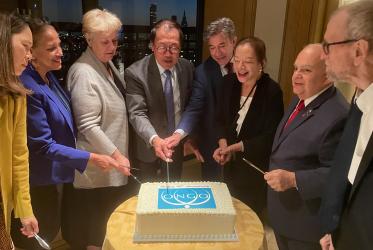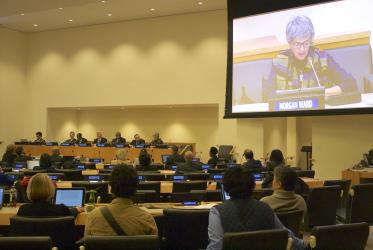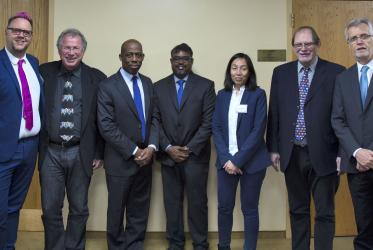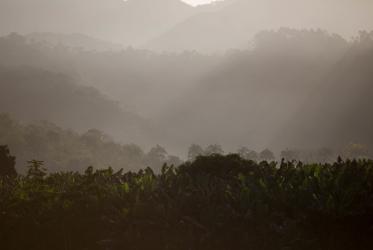Displaying 1 - 20 of 24
25 April 2024
Pan African Women of Faith issue fervent Call to Action
20 November 2018
New economic architecture focus of New York meeting
22 April 2018
Voices from Colombia: “What if we have no land to till?”
15 February 2018
Protect the Amazon, urges WCC statement
22 November 2017
Re-engineering life forms: Church forum raises concerns
09 November 2017
Responsible agriculture investments theme of WCC session
16 October 2017
G20 summit: call to pray for peace in Hamburg
07 July 2017
G7 must address famine
22 May 2017















